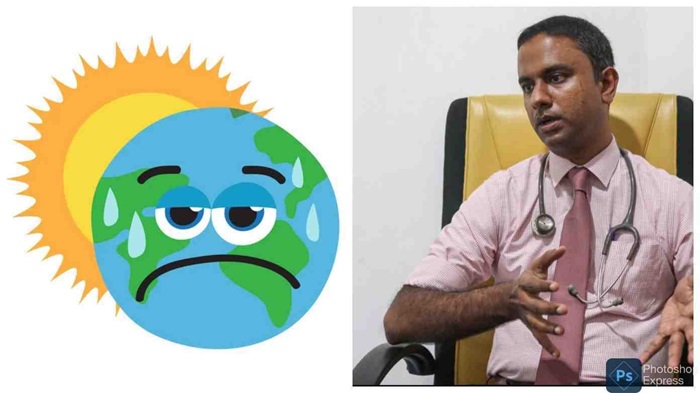
By Dr. Rajeev Menon
(Medical Doctor – National Institute of Nephrology, Dialysis and Transplantation)
As the temperatures are rising across Sri Lanka during these days, it’s crucial to pay attention to our hydration levels. Dehydration can have serious consequences for our overall health, especially our kidneys. In this article, I will explore the importance of staying hydrated, how dehydration affects kidney function, and practical tips to prevent it.
Why Hydration Matters for Kidney Health
Our kidneys play a vital role in filtering waste products and maintaining fluid balance in our bodies. When we become dehydrated, our kidneys struggle to perform these functions effectively. Here’s why hydration is essential for kidney health:
- Fluid Clearance: Adequate fluid intake helps the kidneys clear out sodium, urea, and other waste products. Insufficient hydration can lead to a higher concentration of these substances, potentially harming kidney function.
- Kidney Stones: Chronic dehydration increases the risk of kidney stone formation. Concentrated urine can lead to the crystallization of minerals, contributing to kidney stones.
How Much Should You Drink?
The National Health Service recommends the following daily fluid intake:
- Women: Eight 200ml glasses of fluid
- Men: Ten 200ml glasses of fluid
However, individual needs vary based on factors like exercise, weather conditions, and health status. Pregnant or breastfeeding individuals should consult their healthcare providers for personalized recommendations.
Signs of Dehydration
Monitor your urine color as an indicator of hydration:
- Desirable: Straw-colored or paler urine
- Dehydrated: Darker urine suggests inadequate fluid intake
Tips to Stay Hydrated
- Drink Water: Plain water is the best choice. Aim for at least the recommended daily amount.
- Avoid Dehydrating Beverages: Limit caffeinated, sweetened, and alcoholic drinks.
- Track Activity: During hot weather or intense exercise, increase water intake to compensate for fluid losses through sweating.
- Limit Salt: Excessive salt can worsen dehydration.
Special Considerations for Kidney Disease Patients
- Dialysis Patients: If you’re on dialysis, closely follow your fluid allowance. Stick to pure water and avoid caffeinated or sweetened drinks.
- Consult Your Healthcare Team: Always discuss dietary changes with your healthcare professionals, especially if you have kidney diseases
Remember, proper hydration is essential for overall well-being, especially during hot seasons. Let’s keep our kidneys healthy by staying hydrated!